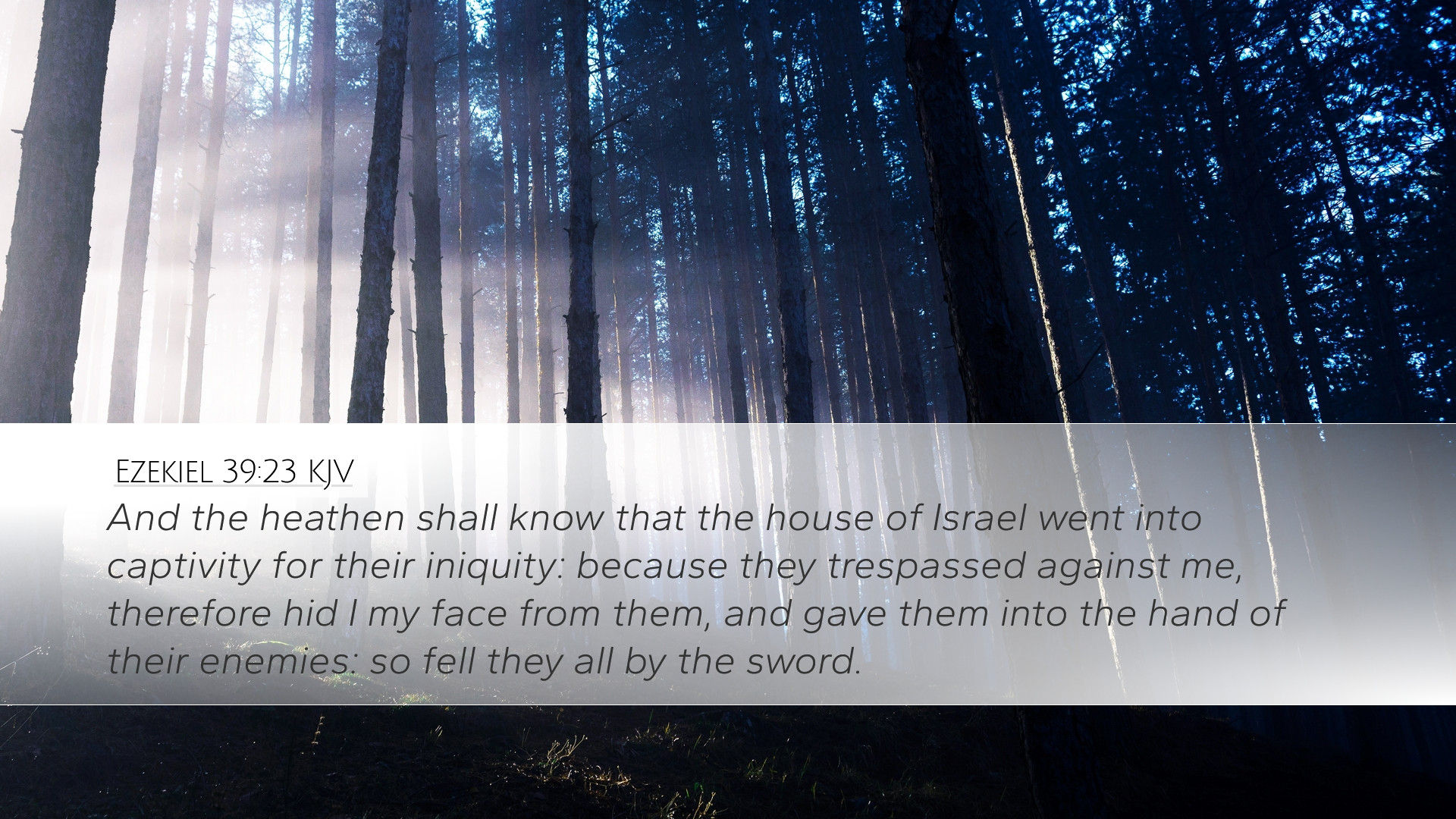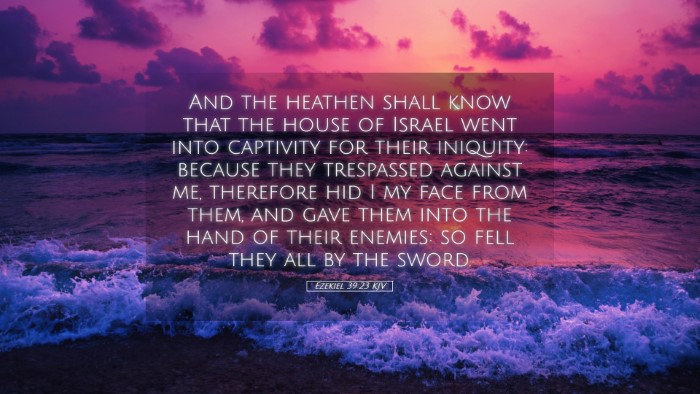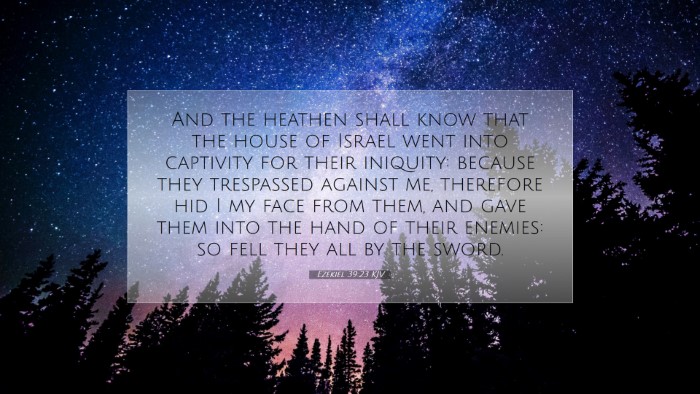Ezekiel 39:23 Commentary Summary
Bible Verse: Ezekiel 39:23 - "And the nations shall know that the house of Israel went into captivity for their iniquity: because they trespassed against me, therefore hid I my face from them and gave them into the hand of their enemies: so fell they all by the sword."
Introduction
The prophecy of Ezekiel encompasses profound themes of judgment and restoration. In this particular verse, the prophet conveys a message that speaks to the broader implications of Israel’s captivity, not merely as a national tragedy but as a demonstration of divine justice and a revelation of God’s nature.
Contextual Analysis
This passage falls within a larger section of Ezekiel (chapters 38-39) that deals with the prophetic vision regarding Gog, the chief prince of Meshech and Tubal. This prophecy addresses both the enemies of Israel and the transgressions of Israel itself.
Matthew Henry's Commentary Insights
Matthew Henry emphasizes that the judgment upon Israel was both deserved and a consequence of their iniquity. In his reflection on this verse, he states:
- Divine Justice: Henry points out that the captivation of Israel was not arbitrary punishment but a result of their persistent disobedience to God. The mention of 'iniquity' is central, stressing that divine judgment is just and purposeful.
- God's Hidden Face: He notes the significance of God's 'hiding his face' from Israel as an expression of divine displeasure. The absence of God’s favor leads to vulnerability and defeat.
Albert Barnes' Commentary Insights
Albert Barnes provides a theological lens through which to understand the aftermath of Israel’s fall:
- National Recognition: Barnes highlights that the nations witnessing Israel’s downfall would recognize God’s sovereignty and justice. Their knowledge of Israel’s punishment serves to elevate God's glory among the nations.
- Understanding of Divine Retribution: He elaborates on the idea that the judgment of Israel serves as a precursor to God's future mercy and restoration for His people. The acknowledgment of sin is essential for restoration.
Adam Clarke's Commentary Insights
Adam Clarke offers a holistic view of the spiritual implications of this captivity. He states:
- Moral Lessons: Clarke points to the moral lessons learned during this period of discipline, suggesting that God's actions were aimed not just at punishment but also at education for both Israel and the surrounding nations.
- Prospect of Restoration: He also emphasizes that the acknowledgment of sin is a prerequisite for healing. Clarke sees in this verse a dual message that encapsulates both judgment and hope for eventual restoration.
Theological Implications
This verse serves as a profound theological reflection on the character of God. The themes of justice and mercy are highlighted, inviting both pastors and theologians to consider the balance of divine righteousness and the prospect of redemption. The acknowledgment of sin is necessary to achieve reconciliation with God.
Conclusion
Ezekiel 39:23 stands as a monumental testament to the reality of sin and the holiness of God. For pastors and theologians, this verse offers a rich tapestry of reflections on judgment, recognition of sin, and the restorative power of God’s mercy. The call to acknowledge iniquity becomes a pathway not only to understanding God's character but also to engaging in the ministry of reconciliation as envisioned in the New Testament.


